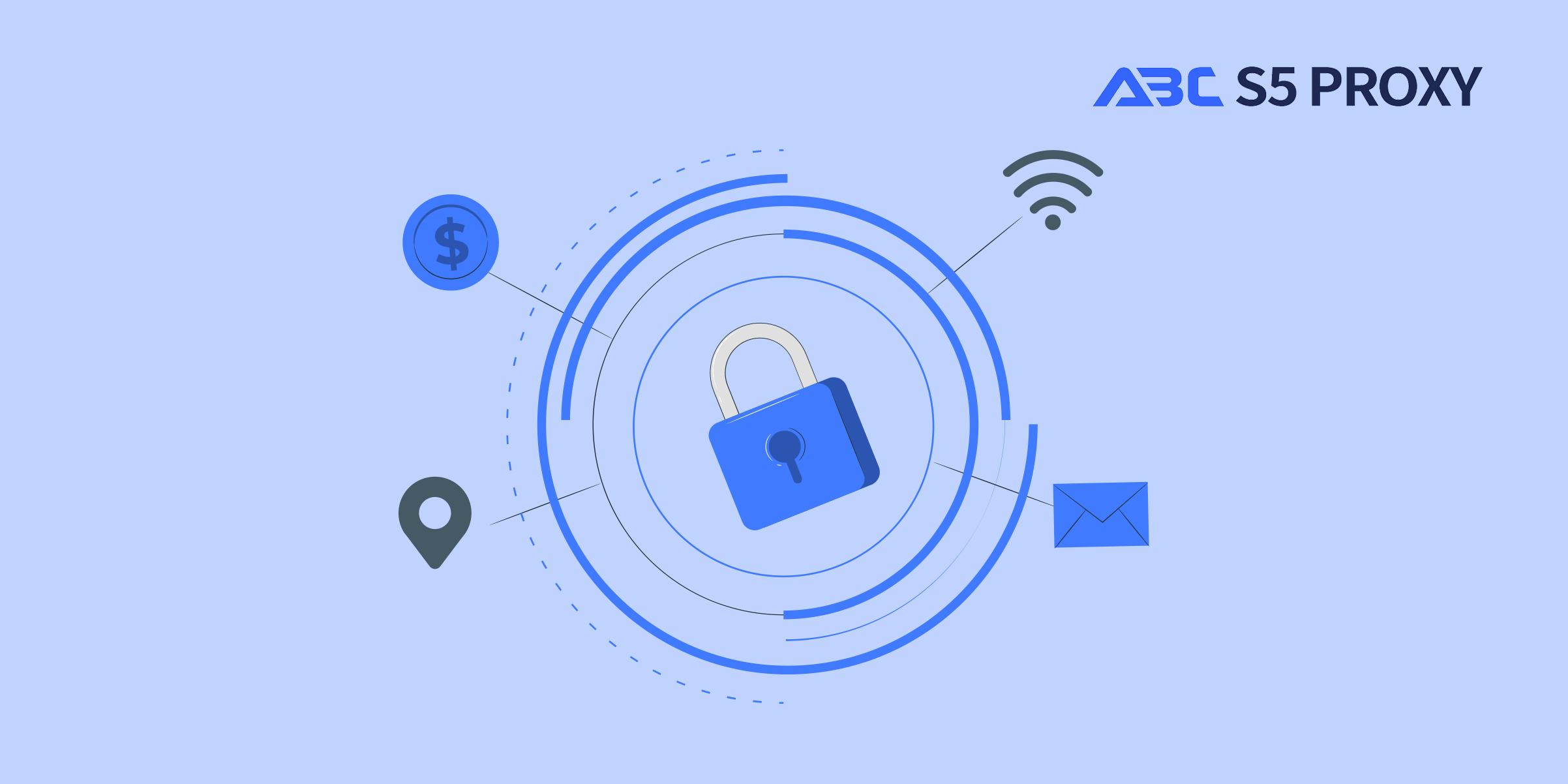Residential Proxies
Allowlisted 200M+ IPs from real ISP. Managed/obtained proxies via dashboard.

Proxies
Residential Proxies
Allowlisted 200M+ IPs from real ISP. Managed/obtained proxies via dashboard.
Residential (Socks5) Proxies
Over 200 million real IPs in 190+ locations,
Unlimited Residential Proxies
Use stable, fast, and furious 700K+ datacenter IPs worldwide.
Static Residential proxies
Long-lasting dedicated proxy, non-rotating residential proxy
Dedicated Datacenter Proxies
Use stable, fast, and furious 700K+ datacenter IPs worldwide.

Web Unblocker
View content as a real user with the help of ABC proxy's dynamic fingerprinting technology.
Proxies
API
Proxy list is generated through an API link and applied to compatible programs after whitelist IP authorization
User+Pass Auth
Create credential freely and use rotating proxies on any device or software without allowlisting IP
Proxy Manager
Manage all proxies using APM interface

Proxies
Residential Proxies
Allowlisted 200M+ IPs from real ISP. Managed/obtained proxies via dashboard.
Starts from
$0.77/ GB
Residential (Socks5) Proxies
Over 200 million real IPs in 190+ locations,
Starts from
$0.045/ IP
Unlimited Residential Proxies
Use stable, fast, and furious 700K+ datacenter IPs worldwide.
Starts from
$79/ Day
Rotating ISP Proxies
ABCProxy's Rotating ISP Proxies guarantee long session time.
Starts from
$0.77/ GB
Static Residential proxies
Long-lasting dedicated proxy, non-rotating residential proxy
Starts from
$5/MONTH
Dedicated Datacenter Proxies
Use stable, fast, and furious 700K+ datacenter IPs worldwide.
Starts from
$4.5/MONTH
Knowledge Base
English
繁體中文
Русский
Indonesia
Português
Español
بالعربية

In the realm of online security and privacy, the use of proxies and IPs plays a crucial role in safeguarding one's anonymity. However, the effectiveness of these tools can be influenced by various factors. Understanding what affects the anonymity of a proxy or IP is essential for maximizing their potential and ensuring your online activities remain secure.
The type of proxy you choose can significantly impact your level of anonymity. While transparent proxies reveal your IP address to the destination server, anonymous proxies hide your IP but may still leak some information. High anonymity proxies, on the other hand, provide the highest level of privacy by masking your IP completely. Selecting the right proxy type is key to maintaining anonymity online.
The geographic location of the proxy server can also affect your anonymity. Proxies located in countries with strict privacy laws offer better protection compared to those in regions with lenient regulations. Opting for servers in privacy-friendly jurisdictions enhances your anonymity and reduces the risk of data exposure.
The level of encryption employed by the proxy service is crucial for maintaining anonymity. Proxies that utilize robust encryption protocols, such as HTTPS or SOCKS, ensure secure data transmission and protect your online identity. Enhanced data security minimizes the likelihood of unauthorized access and safeguards your anonymity effectively.
The logging policies of proxy providers play a significant role in preserving anonymity. Services that adhere to strict no-logs policies do not store any user information, ensuring complete anonymity. Prioritize providers that prioritize user privacy and offer transparent policies to guarantee the confidentiality of your online activities.
The speed of your connection through the proxy can impact your anonymity. Slow connection speeds increase the risk of exposure and diminish the effectiveness of the proxy in masking your identity. Opt for proxies with high-speed connections to maintain seamless anonymity without compromising performance.
User authentication mechanisms implemented by proxy services contribute to anonymity levels. Proxies that require authentication protocols, such as username and password, enhance security and prevent unauthorized access. By verifying user identity, these proxies bolster anonymity and safeguard against potential threats.
The reputation of the IP address used by the proxy can influence anonymity risks. IPs with a history of malicious activities or blacklisting pose a higher risk of exposure and compromise anonymity. Choosing proxies with reputable IP addresses reduces the likelihood of detection and enhances overall anonymity protection.
Regular monitoring of proxy settings and configurations is essential for maintaining anonymity. Periodically checking for leaks, updating encryption protocols, and reviewing security measures fortify your anonymity defenses. By staying vigilant and proactive, you can ensure consistent protection of your online identity through proxies and IPs.
In conclusion, the anonymity of a proxy or IP is influenced by various factors, including proxy type, server location, encryption, logging policies, connection speed, user authentication, IP reputation, and continuous monitoring. By understanding and addressing these key elements, you can maximize your anonymity levels and mitigate potential risks effectively. Prioritizing security and privacy in your online activities is paramount to safeguarding your identity and data in an increasingly interconnected digital landscape.
Featured Posts
Popular Products
Residential Proxies
Allowlisted 200M+ IPs from real ISP. Managed/obtained proxies via dashboard.
Residential (Socks5) Proxies
Over 200 million real IPs in 190+ locations,
Unlimited Residential Proxies
Use stable, fast, and furious 700K+ datacenter IPs worldwide.
Rotating ISP Proxies
ABCProxy's Rotating ISP Proxies guarantee long session time.
Residential (Socks5) Proxies
Long-lasting dedicated proxy, non-rotating residential proxy
Dedicated Datacenter Proxies
Use stable, fast, and furious 700K+ datacenter IPs worldwide.
Web Unblocker
View content as a real user with the help of ABC proxy's dynamic fingerprinting technology.
Related articles

How does the ChatGPT RAG example improve information processing capabilities
Analyze the actual application scenarios of ChatGPT combined with Retrieval Augmented Generation (RAG) technology, explore its value in knowledge integration and data acquisition, and understand how abcproxy provides underlying support for the RAG system.

How does Best Socks5 Proxy ensure anonymous network needs
This article explores the core value of Socks5 proxy in anonymous networks and analyzes how abcproxy high anonymous proxy meets diverse security needs.

How to remove website access restrictions
This article analyzes the technical principles and mainstream solutions of website access restrictions, and explores the core role of proxy IP in bypassing regional blocking and anti-crawling mechanisms. abcproxy provides multiple types of proxy IP services to help you break through network restrictions efficiently.